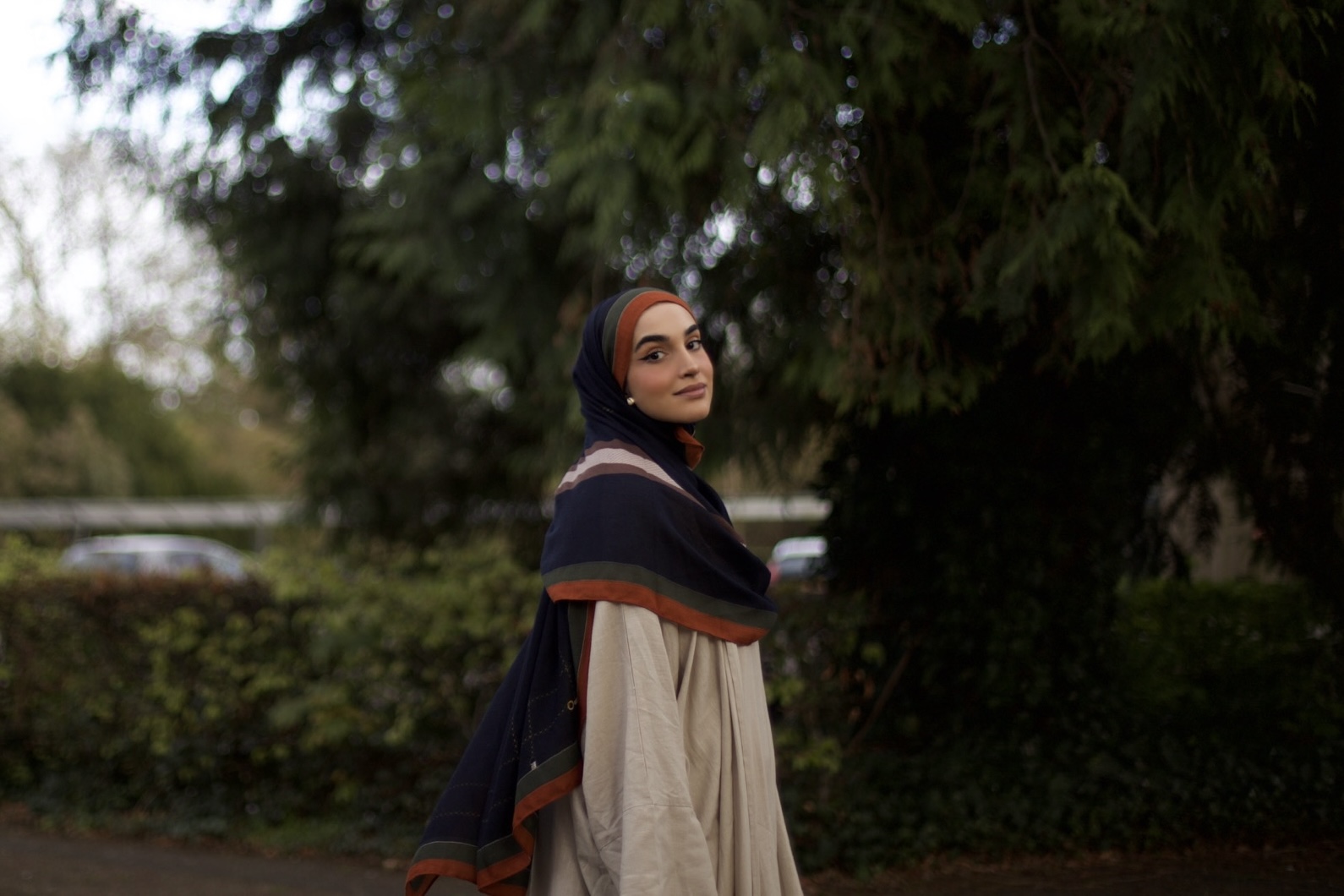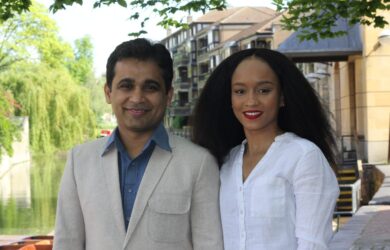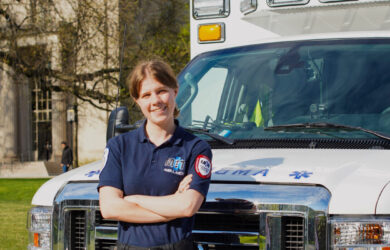
Ata Elbizanti on her research into how learning affects brain activity and how we make decisions and why, in an age of AI, it is vital to understand how human neural networks work.
The more we understand how the brain learns and pays attention, the more we can develop targeted treatments for people struggling with neurodevelopmental disorders and cognitive deficits.
Ata Elbizanti
Ata Elbizanti [2024] is interested in understanding how learning affects brain activity, particularly in areas responsible for processing visual information and those involved in decision-making. Her aim is to improve treatments for cognitive deficits and enhance our overall understanding of the brain and how we perceive the world.
Ata’s PhD in Physiology, Development and Neuroscience at Dr Jasper Poort’s Selective Vision Lab will see her studying the brain on a circuit level and seeking to explore how neurons interact in a neural network and what the connections made mean. “It’s like posting a letter that goes to a person via different routes. I want to understand how those different routes work and to isolate the routes that may be causing problems,” says Ata.
She will be using advanced techniques such as two-photon Calcium imaging and Optogenetics to image individual neurons in genetic mouse models of neurodevelopmental disorders and healthy mice while they perform visually-guided decision tasks. The objective of the experiments is to understand how the mice’s brains process sensory information and how neural circuit dynamics change with learning and attention. The ultimate aim is to eventually develop treatments for humans that can precisely target circuits where there are problems, as most current treatments are more general and act on the whole brain.
“We hope to uncover the mystery of how visual learning and attention shape the neural processes that determine how we interact with the world,” says Ata. “This work could be revolutionary. The more we understand how the brain learns and pays attention, the more we can develop targeted treatments for people struggling with neurodevelopmental disorders and cognitive deficits. This deeper understanding could help reduce stigma, improve how we approach these conditions, and ultimately enhance our interactions with one another.”
She adds: “With the current overload of information in the world, understanding how the brain selects the sensory information that is most important for decision-making is crucial for all humans, as it impacts how we navigate daily life, make choices and respond to the world around us. By uncovering these processes, I hope this research will make a meaningful difference to all humanity.”
Background
Ata is the first Gates Cambridge Scholar from Libya. She was born in Tripoli, the youngest of three children. From middle school where the world of science opened up to her, feeding her natural curiosity, she had a plan to study abroad and get access to a high quality education to pursue her interest in the brain. After the 2011 revolution and subsequent 2014 civil war in Libya, this no longer seemed possible, but she didn’t give up. She says: “In Libya you learn from a very young age that your path is defined by your own choices. Sometimes you have to take things into your own hands and find different ways of not letting go of something that you want to achieve.”
This mindset has been crucial to Ata’s journey, and through all of her struggles, her parents, especially her father, were always there to guide and support her. “My father’s unwavering belief in my abilities and dreams strengthened my resolve to keep pushing forward, no matter the obstacles,” she says. “He’s not just my biggest supporter; he’s the reason I’ve had the determination to come this far.”
At high school, where she often had to work by candlelight amid the long electricity cuts, uncertainty and constant peril of war, she did well in her studies, achieving the third highest average score in the country in her final-year national exams. She was also keen to ensure Libyan students had the benefit of a broad-based education. At the time, Libyan schools didn’t typically put on any extracurricular activities. Ata, however, was aware how these could add to the educational experience. Inspired by her biology teacher who consistently went the extra mile, she petitioned to set up a science fair and a book club at her school to expand what could be learned to more than passing tests and following the curriculum.
Lebanon
That work and her academic abilities helped her gain a place on the MEPI Tomorrow’s Leaders Undergraduate (TLU) Scholarship Programme in Lebanon in 2016. The programme, based at the American University of Beirut (AUB), gave her an introduction to core leadership values and to the idea that education is not just about acquiring knowledge but about what you do with it.
In Beirut, where she did a Psychology degree, Ata started to work with NGOs such as the Red Cross and UNICEF, teaching STEM subjects to Syrian and Palestinian children in refugee camps.
After graduation she returned to Libya where she worked with the United Nations International Organisation for Migration as a psychosocial support consultant with migrants. She saw how different people react to traumatic experiences in different ways and felt like there were deeper underlying reasons that affect why people see the world in different ways. That curiosity drew her eventually to Neuroscience.
Postgraduate studies
In 2021 she was awarded The Chevening Scholarship to do her Master’s at University College London. Following her graduation, she worked as a research assistant at the University of Cambridge while she worked out what she wanted to do for her PhD. Her supervisor encouraged her to apply to Gates Cambridge.
She is excited about her PhD, which she has just started. She says: “The brain is constantly processing signals and making decisions, but sometimes that process doesn’t work well.” She sees broad applications, including for improving people’s employability if they have certain cognitive challenges or for helping students affected by neurodevelopmental disorders to avoid coping mechanisms that may lead to further problems.
She adds: “We talk these days about how AI – which is modelled after human learning – is creating artificial neural networks. Yet, we still don’t fully understand how our own neural networks work. This gap in understanding is where I want to make an impact.”












